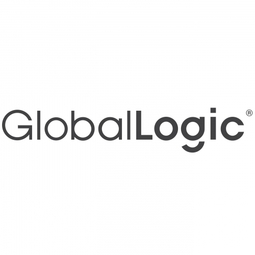GlobalLogic Partners with Target Professional Services to Safeguard the Future of Next-Generation Applications

Customer Company Size
Large Corporate
Country
- United Kingdom
Product
- mypensionID
- Apollo CRM
- AWS Well-Architected Review
Tech Stack
- AWS
- Infrastructure as Code
Implementation Scale
- Enterprise-wide Deployment
Impact Metrics
- Cost Savings
- Customer Satisfaction
- Productivity Improvements
Technology Category
- Infrastructure as a Service (IaaS) - Cloud Computing
- Application Infrastructure & Middleware - API Integration & Management
- Cybersecurity & Privacy - Cloud Security
Applicable Industries
- Finance & Insurance
Applicable Functions
- Business Operation
- Quality Assurance
Services
- Cloud Planning, Design & Implementation Services
- Cybersecurity Services
- System Integration
About The Customer
Target Professional Services is best known for being a global leader in data verification and trace solutions for pensions schemes, financial services, and government authorities. For over 30 years, Target Professional Services has provided innovation in data privacy and information security – consistently achieving the highest accuracy and success rates in the industry, to the envy of its peers. The company is committed to ensuring they have the right platform for the pace of innovation, which is why they sought a health check of their cloud-based customer-facing and internal applications. This was to determine any improvements that could be made to bring them in line with current industry best practices. They decided on an AWS Well-Architected Review with GlobalLogic to achieve this goal.
The Challenge
In anticipation of an upcoming application launch, Target Professional Services were keen to arm themselves with visibility over their application ecosystem. Familiar with the AWS toolset, GlobalLogic was invited to conduct an AWS Well-Architected Review as a first step to test and safeguard security in their application landscape. Faced with compliance obligations, Target Professional Services were equally interested in understanding the operational resilience of their solution and its ability to scale applications whilst manage costs. Another challenge was consolidating siloed AWS accounts into one centrally managed platform. Target Professional Services were also keen for GlobalLogic, as AWS experts, to educate them and their third-party partners in understanding best practices for operating applications in the cloud.
The Solution
GlobalLogic approached the engagement with an architectural assessment that would provide a health check of Target Professional Services cloud services. Otherwise known as an AWS Well-Architected Review, this review enabled us to impartially review the client’s cloud architecture and offer a detailed 1:1 consultation and recommendations. These recommendations included user stories to demonstrate what the solution would look like, as well as an order of priority. We highlighted items that were a risk and/or activity that could be grouped and tackled together – the two birds, one stone approach. In particular, Target Professional Services asked GlobalLogic to investigate two applications – mypensionID and Apollo CRM – along with the AWS platform in its entirety. Each being data rich and with global reach, Target Professional Services couldn’t afford any outages or security breaches and were extremely vigilant when it came to any interfaces integrated with the app’s infrastructure. GlobalLogic’s review identified several improvements that could directly improve the reliability and security of the applications and align Target Professional Services to the AWS Well-Architected Framework best practices. We set out a program of work over 12 days and dropped in a team of engineers to work through the scope of work agreed.
Operational Impact
Quantitative Benefit

Case Study missing?
Start adding your own!
Register with your work email and create a new case study profile for your business.
Related Case Studies.

Case Study
Real-time In-vehicle Monitoring
The telematic solution provides this vital premium-adjusting information. The solution also helps detect and deter vehicle or trailer theft – as soon as a theft occurs, monitoring personnel can alert the appropriate authorities, providing an exact location.“With more and more insurance companies and major fleet operators interested in monitoring driver behaviour on the grounds of road safety, efficient logistics and costs, the market for this type of device and associated e-business services is growing rapidly within Italy and the rest of Europe,” says Franco.“The insurance companies are especially interested in the pay-per-use and pay-as-you-drive applications while other organisations employ the technology for road user charging.”“One million vehicles in Italy currently carry such devices and forecasts indicate that the European market will increase tenfold by 2014.However, for our technology to work effectively, we needed a highly reliable wireless data network to carry the information between the vehicles and monitoring stations.”

Case Study
Safety First with Folksam
The competitiveness of the car insurance market is driving UBI growth as a means for insurance companies to differentiate their customer propositions as well as improving operational efficiency. An insurance model - usage-based insurance ("UBI") - offers possibilities for insurers to do more efficient market segmentation and accurate risk assessment and pricing. Insurers require an IoT solution for the purpose of data collection and performance analysis

Case Study
Smooth Transition to Energy Savings
The building was equipped with four end-of-life Trane water cooled chillers, located in the basement. Johnson Controls installed four York water cooled centrifugal chillers with unit mounted variable speed drives and a total installed cooling capacity of 6,8 MW. Each chiller has a capacity of 1,6 MW (variable to 1.9MW depending upon condenser water temperatures). Johnson Controls needed to design the equipment in such way that it would fit the dimensional constraints of the existing plant area and plant access route but also the specific performance requirements of the client. Morgan Stanley required the chiller plant to match the building load profile, turn down to match the low load requirement when needed and provide an improvement in the Energy Efficiency Ratio across the entire operating range. Other requirements were a reduction in the chiller noise level to improve the working environment in the plant room and a wide operating envelope coupled with intelligent controls to allow possible variation in both flow rate and temperature. The latter was needed to leverage increased capacity from a reduced number of machines during the different installation phases and allow future enhancement to a variable primary flow system.

Case Study
Automated Pallet Labeling Solution for SPR Packaging
SPR Packaging, an American supplier of packaging solutions, was in search of an automated pallet labeling solution that could meet their immediate and future needs. They aimed to equip their lines with automatic printer applicators, but also required a solution that could interface with their accounting software. The challenge was to find a system that could read a 2D code on pallets at the stretch wrapper, track the pallet, and flag any pallets with unread barcodes for inspection. The pallets could be single or double stacked, and the system needed to be able to differentiate between the two. SPR Packaging sought a system integrator with extensive experience in advanced printing and tracking solutions to provide a complete traceability system.

Case Study
Transforming insurance pricing while improving driver safety
The Internet of Things (IoT) is revolutionizing the car insurance industry on a scale not seen since the introduction of the car itself. For decades, premiums have been calculated using proxy-based risk assessment models and historical data. Today, a growing number of innovative companies such as Quebec-based Industrielle Alliance are moving to usage-based insurance (UBI) models, driven by the advancement of telematics technologies and smart tracking devices.
Case Study
Enhancing Security and Compliance in Remitly's Global Money Transfer Service with Fastly
Remitly, an online remittance service, was faced with the challenge of securing its proprietary global transfer network. The company needed a security solution that could meet PCI requirements and protect customers' sensitive transactions through its mobile application. The solution had to be capable of defending against new and emerging attack types without impacting performance. Remitly also had to deal with irregular traffic patterns, such as a sudden spike in account transfers from a small network segment on the Pacific coastline of South America. The company needed to determine in real time whether such traffic indicated an attack or valid requests. A traditional web application firewall (WAF) would not be able to distinguish this traffic, potentially leading to customer frustration if the IP was blacklisted.






